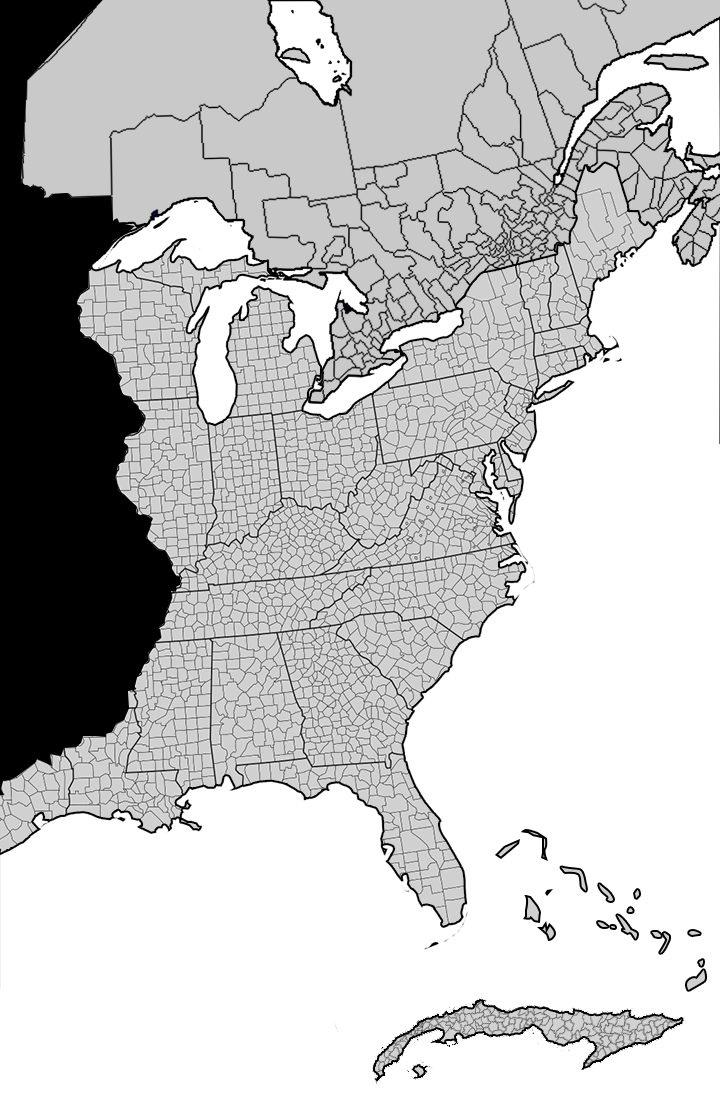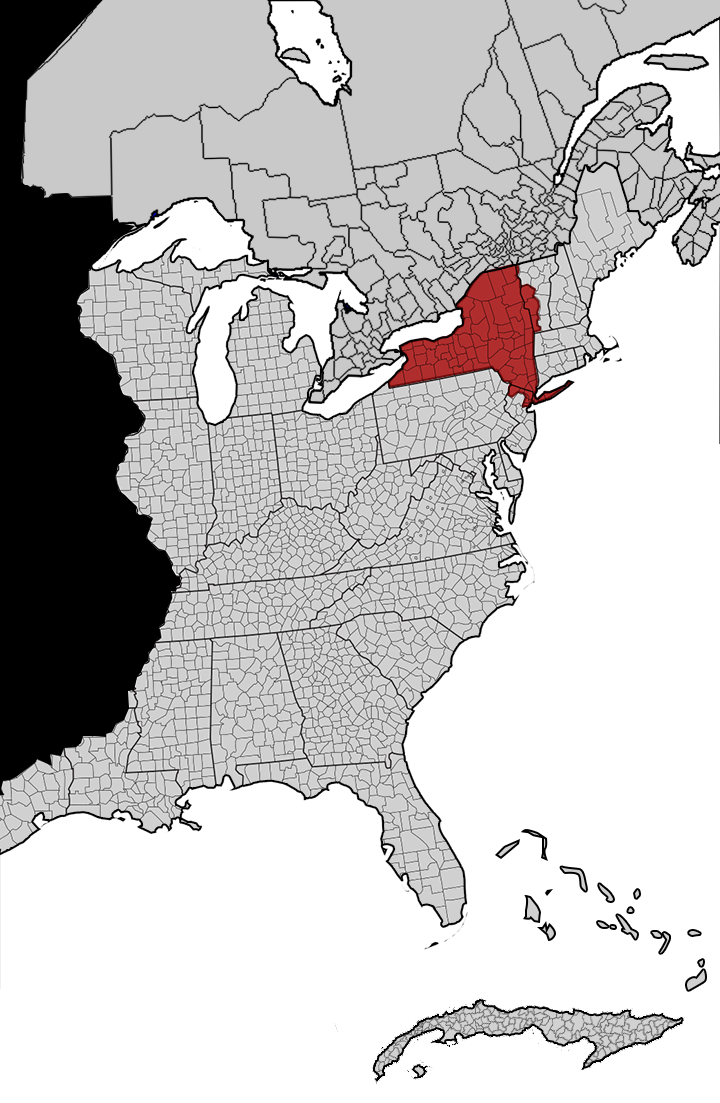By the year 2023, the world was already two horsemen deep. With pre-existing conflicts intensifying, attacks against states from an amorphous and asymmetric foe had blanketed the western world in a near state of war, while the same enemies perpetuated heated war across the Middle East, attracting the attention of the world's great power who in swallowing their prides and willingly turning their back on the old lessons learned put boots on the ground. It was a move that wouldn't lead to the victory they sought to have, and the presence of the foreign enemy at arm's reach galvanized the enemy. In the end, the enraged conflict grew beyond its borders. This was the first Horseman.
Somehow by a miracle and in the tense atmosphere the war never saw the launch of missiles. But it saw the outbreak of something else. While it may have been directed by the invisible hand of the invisible enemy, or simply found the new capability to spread and to do so rapidly familiar diseases that had taken on an unfamiliar and dangerous new trait found its way across the world. Like an influenza, contagious diseases thought exterminated swept the western nations of the world. It could not be stopped with the old antibiotic medicines so often employed. Long incubated in parts of the world where the medicines have been abused beyond the breaking point the world was ravaged. This was the Second.
The Third Horseman though was already there, twisting the strings of trade and cheating the scales of weights. But as his brothers worked with loud and heavy-handed might the roads were opened for new opportunities of disaster. With the costs of war and defense sapping funding of the developed world into defense, and the rising price-tag of dealing with the biological disaster the banks and economy started to cough sputter. Turning anemic as it caught second hand the plague of human discontent. The line was drawn tight, and set ready for the final cut by the Third Horseman.
And the fourth came. Not in nuclear fire. Not from above. But a monster from within. With a great explosion, the sleeping cauldera of Yellowstone erupted in 2023 spewing ash and smoke into the atmosphere. The toxic ash the poured forth from the Earth's mantle spread like a heavy blanket over the United States showing the country the true form of black terror. In a force not since seen since the Black Blizzards of the thirties, and never before exceeded ash fell and blanketed large swathes of the North American continent and completely covering the United States.
This was the ax that fell, the knife that cut the string of sickly economy. The collapse of the United States sent more than ripples through the world's affairs and the nations that rose upon the terrifying crests of the waves formed by its banks falling Europe and Asia so too did fall. The world economy which had so long provided peace let loose unrestrained war and the rest of the world crumbled in the last desperate gasp of man.
But if the Fourth Horseman had intended it, he had failed. Or perhaps it was enough to swing the hammer of justice one time and strike out man's knees for now. Or they wanted to keep them for their own continuing games. For humanity did not die out. And while the US and Canada lay buried under thick ash, with the world smoldering from conflict around it man survived. Man survived to recollect, to rebuild.
This was the wake of the Four Horsemen.
The Fourth Horseman Came is a proposed NRP to take place in North America, a generation or two after the eruption of Yellowstone plunged the country into darkness and covered it in ash. While weak, man came back around not entirely destroyed. For starters, the blanket of ash was at its heaviest in the west, where it has buried cities and choked the fields and forests in a thick layer of lethal volcanic dust. Nothing survived, and the rich farm lands of the American west are leveled with its cities, its people, and all that stood between.
For that purpose, the bulk of the RP will be focused on lands east of the Mississippi and eastern Canada. I'm still considering whether or not to spread the scope of the RP into the Texas coast and parts of Mexico to provide diversity, hence no map yet. But I'll come to that decision soon.
So, time to address something: what's the effect of the volcanic ash?
Volcanic ash isn't like radiation or any of the other common tropes in apocalyptic literature. In this case its hardly global, but is important to the regional scope of the RP.
The immediate effects of ash would have been a global cooling as the air born dust particles blot out and darken the sun bringing on harder winters and colder weather for some time to come. In a world wrecked by war, biological devastation, and economic collapse the harsher winters and darker sunlight would further stress and reduce foreign society. As a result this means there's no non-American power capable of intervening in the US. They've all fell apart in their own ways and lack the economic and manpower means to do much beyond care about what's immediately around them.
Further, for what it matters for the US the volcanic ash would have fried electrical equipment, jammed the moving parts on mechanical equipment, and contributed the collapse of infrastructure, particularly more in the west. It has a tendency to get almost everywhere and destroy it. It too would have played havoc on the health of man with symptoms akin to the Dust Pneumonia from the Dust Bowl and possibly even long-term health effects.
The RP'll open some time after Yellowstone busts its lid. The world in the east is for all intents and purposes healing and so states are crawling back and taking on the guise of nations.
Somehow by a miracle and in the tense atmosphere the war never saw the launch of missiles. But it saw the outbreak of something else. While it may have been directed by the invisible hand of the invisible enemy, or simply found the new capability to spread and to do so rapidly familiar diseases that had taken on an unfamiliar and dangerous new trait found its way across the world. Like an influenza, contagious diseases thought exterminated swept the western nations of the world. It could not be stopped with the old antibiotic medicines so often employed. Long incubated in parts of the world where the medicines have been abused beyond the breaking point the world was ravaged. This was the Second.
The Third Horseman though was already there, twisting the strings of trade and cheating the scales of weights. But as his brothers worked with loud and heavy-handed might the roads were opened for new opportunities of disaster. With the costs of war and defense sapping funding of the developed world into defense, and the rising price-tag of dealing with the biological disaster the banks and economy started to cough sputter. Turning anemic as it caught second hand the plague of human discontent. The line was drawn tight, and set ready for the final cut by the Third Horseman.
And the fourth came. Not in nuclear fire. Not from above. But a monster from within. With a great explosion, the sleeping cauldera of Yellowstone erupted in 2023 spewing ash and smoke into the atmosphere. The toxic ash the poured forth from the Earth's mantle spread like a heavy blanket over the United States showing the country the true form of black terror. In a force not since seen since the Black Blizzards of the thirties, and never before exceeded ash fell and blanketed large swathes of the North American continent and completely covering the United States.
This was the ax that fell, the knife that cut the string of sickly economy. The collapse of the United States sent more than ripples through the world's affairs and the nations that rose upon the terrifying crests of the waves formed by its banks falling Europe and Asia so too did fall. The world economy which had so long provided peace let loose unrestrained war and the rest of the world crumbled in the last desperate gasp of man.
But if the Fourth Horseman had intended it, he had failed. Or perhaps it was enough to swing the hammer of justice one time and strike out man's knees for now. Or they wanted to keep them for their own continuing games. For humanity did not die out. And while the US and Canada lay buried under thick ash, with the world smoldering from conflict around it man survived. Man survived to recollect, to rebuild.
This was the wake of the Four Horsemen.
The Fourth Horseman Came is a proposed NRP to take place in North America, a generation or two after the eruption of Yellowstone plunged the country into darkness and covered it in ash. While weak, man came back around not entirely destroyed. For starters, the blanket of ash was at its heaviest in the west, where it has buried cities and choked the fields and forests in a thick layer of lethal volcanic dust. Nothing survived, and the rich farm lands of the American west are leveled with its cities, its people, and all that stood between.
For that purpose, the bulk of the RP will be focused on lands east of the Mississippi and eastern Canada. I'm still considering whether or not to spread the scope of the RP into the Texas coast and parts of Mexico to provide diversity, hence no map yet. But I'll come to that decision soon.
So, time to address something: what's the effect of the volcanic ash?
Volcanic ash isn't like radiation or any of the other common tropes in apocalyptic literature. In this case its hardly global, but is important to the regional scope of the RP.
The immediate effects of ash would have been a global cooling as the air born dust particles blot out and darken the sun bringing on harder winters and colder weather for some time to come. In a world wrecked by war, biological devastation, and economic collapse the harsher winters and darker sunlight would further stress and reduce foreign society. As a result this means there's no non-American power capable of intervening in the US. They've all fell apart in their own ways and lack the economic and manpower means to do much beyond care about what's immediately around them.
Further, for what it matters for the US the volcanic ash would have fried electrical equipment, jammed the moving parts on mechanical equipment, and contributed the collapse of infrastructure, particularly more in the west. It has a tendency to get almost everywhere and destroy it. It too would have played havoc on the health of man with symptoms akin to the Dust Pneumonia from the Dust Bowl and possibly even long-term health effects.
The RP'll open some time after Yellowstone busts its lid. The world in the east is for all intents and purposes healing and so states are crawling back and taking on the guise of nations.





